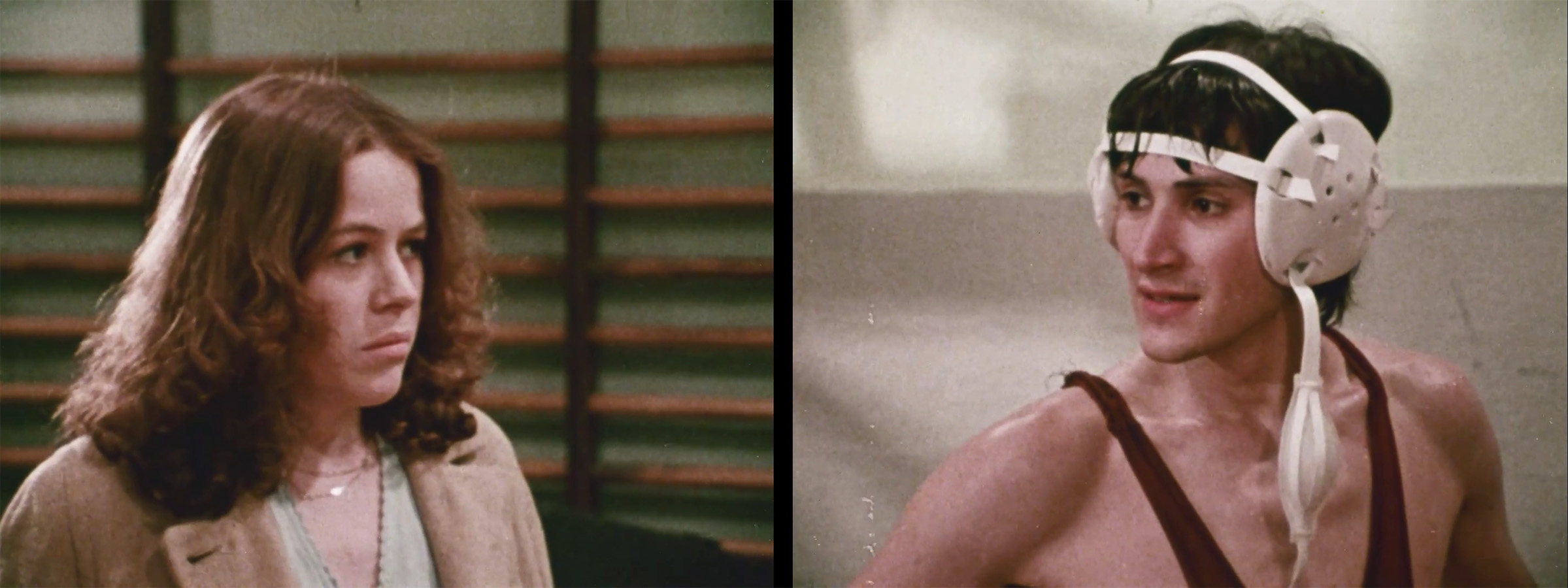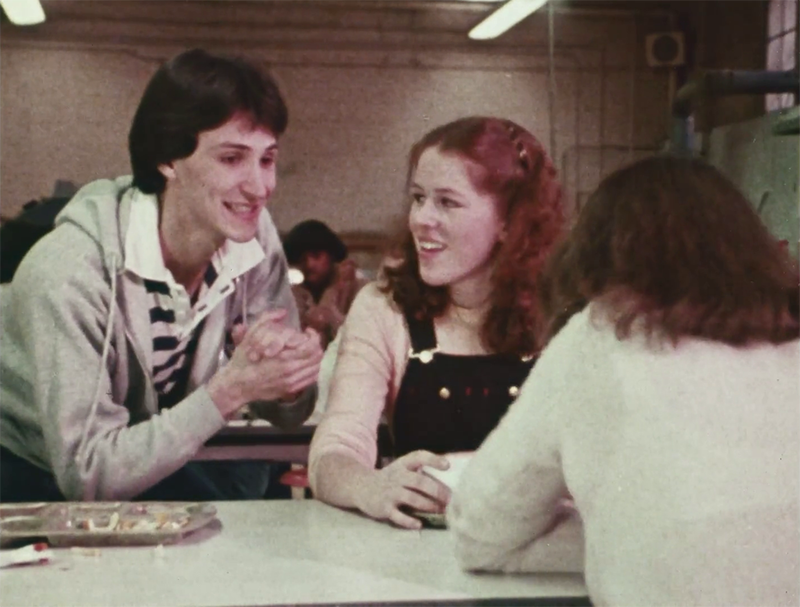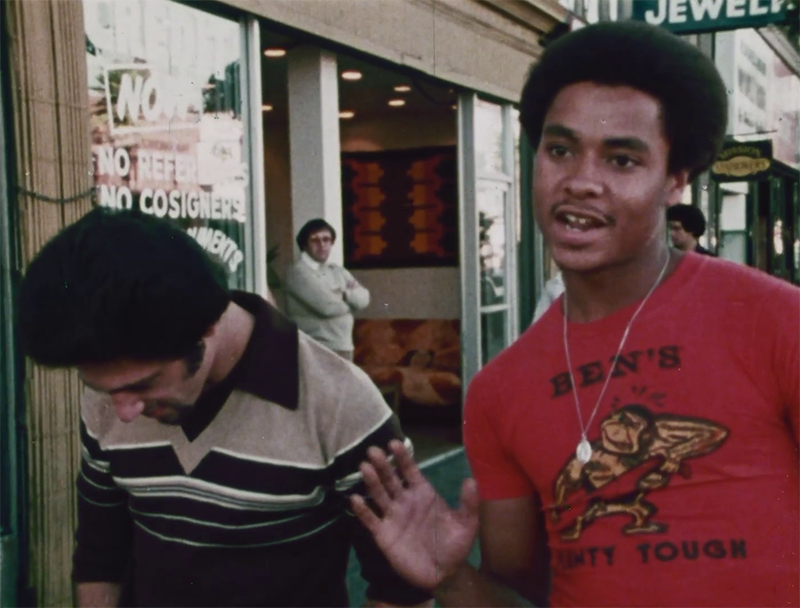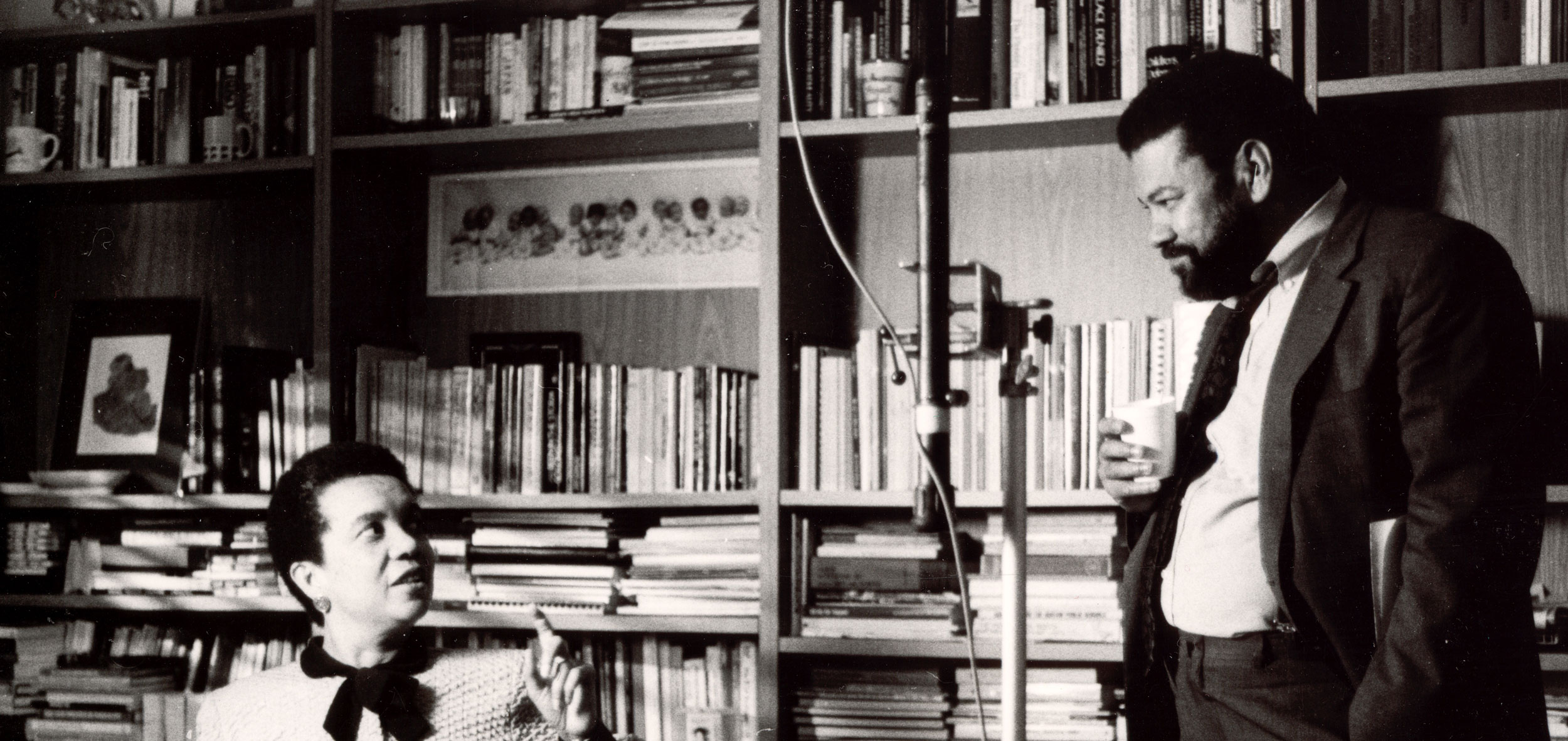
Libraries Finish Preservation Project on 1980 Sex Ed Film
The Washington University Libraries has completed the photochemical preservation and digitization of the 1980 short film A Matter of Respect. The venerable production company Blackside Inc., best known for its groundbreaking documentary series on the Civil Rights Movement, Eyes on the Prize, made the film for the federal government. The short was part of a larger campaign to persuade sexually active teenage boys to take equal responsibility for the pregnancies they co-created.
The film is now available to view.
The preservation of the film was made possible thanks to a grant of $5,833.23 from the National Film Preservation Foundation (NFPF). The NFPF is a federally funded organization devoted to conserving and restoring important American movies of all kinds back onto film stock. The Libraries hired the experts at Colorlab, one of the few remaining photochemical film labs in North America, to digitize the best remaining copy, restore its lost color, and output it to a variety of new film elements and digital files. The new copies on film stock will last for centuries if kept in cool and dry conditions as the Libraries do in their media vault.
The U.S. Department of Health, Education, and Welfare hired Blackside to produce the film. The Department’s Office of Family Planning was in the middle of educating teenage boys about the realities of pregnancy. According to the Office’s studies, young men were increasingly leaving their former partners to deal with getting pregnant by themselves.
The U.S. government was looking for a film to show teenage boys that wasn’t moralistic, i.e., sex is bad, nor did it want one that tried to force young people to get married, just because they became pregnant. Instead, the goal was to speak to young folks honestly while convincing them to examine what it means to engage in sexual activity in a mature way.
As such, this isn’t a sex education film in the sense of a stilted lecture showing how human sexual reproduction works. Instead, Mark Harris came up with a film that mixes a fictional story of teen romance and regrets with nonfiction footage of the impact of teenage pregnancies.

In the former, subtitled “Tommy and Angela: A Case Study,” the titular duo meet cute during lunch in the school cafeteria. The two go on a date that includes the video arcade, pizza, and disco dancing. (The perfect date!) The couple has unprotected sex and they break up when Angela, played by future Sons of Anarchy actor McNally Sagal, tells Tommy she’s pregnant. At the end of the film, they decide to handle the pregnancy together. Whether Angela and Tommy get back together as a couple, and what they decide to do, is left to the audience to discuss.

In between the development of Angela and Tommy’s story are documentary segments that provide real-world examples for the audience. A series of “man-on-the-street” interviews (and that gendered term is useful here as it’s about the views of young men) gets interviewees to talk about what it means to be a man and their responsibilities, or lack thereof, to their sexual partners.
In excerpts from a speech to teenagers, the Reverend Jesse Jackson talks about the difference between having sex as a physical act and the duties having sex demands as a mature adult. In another scene, teenage mothers, and expectant mothers, from the School-Age-Mothers Project in San Francisco talk frankly about their disappointment in being abandoned by their child’s father and the resulting economic and personal hardships.
Henry Hampton’s Blackside, Inc. made movies to make the world a better place.
For more on A Matter of Respect and its preservation or Henry Hampton’s Blackside, Inc., please contact the Washington University Libraries Curator of the Film & Media Archive, Andy Uhrich, at jauhrich@wustl.edu.

